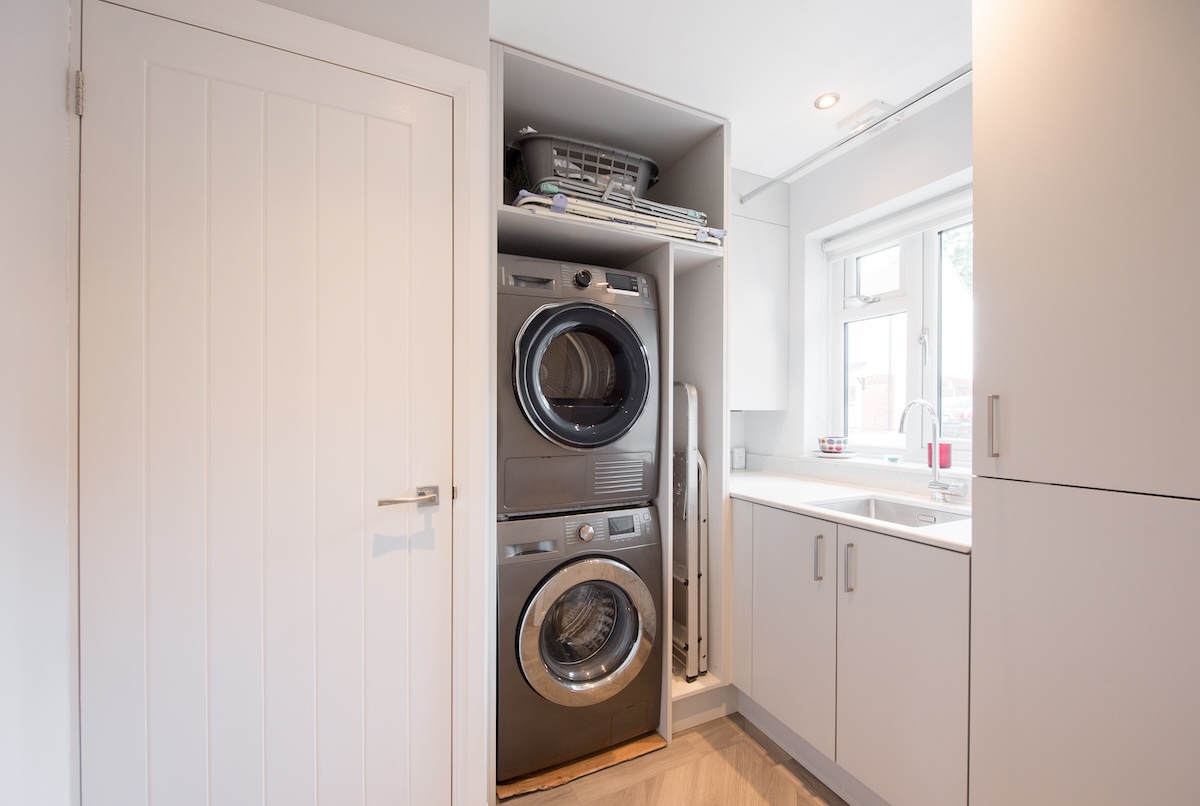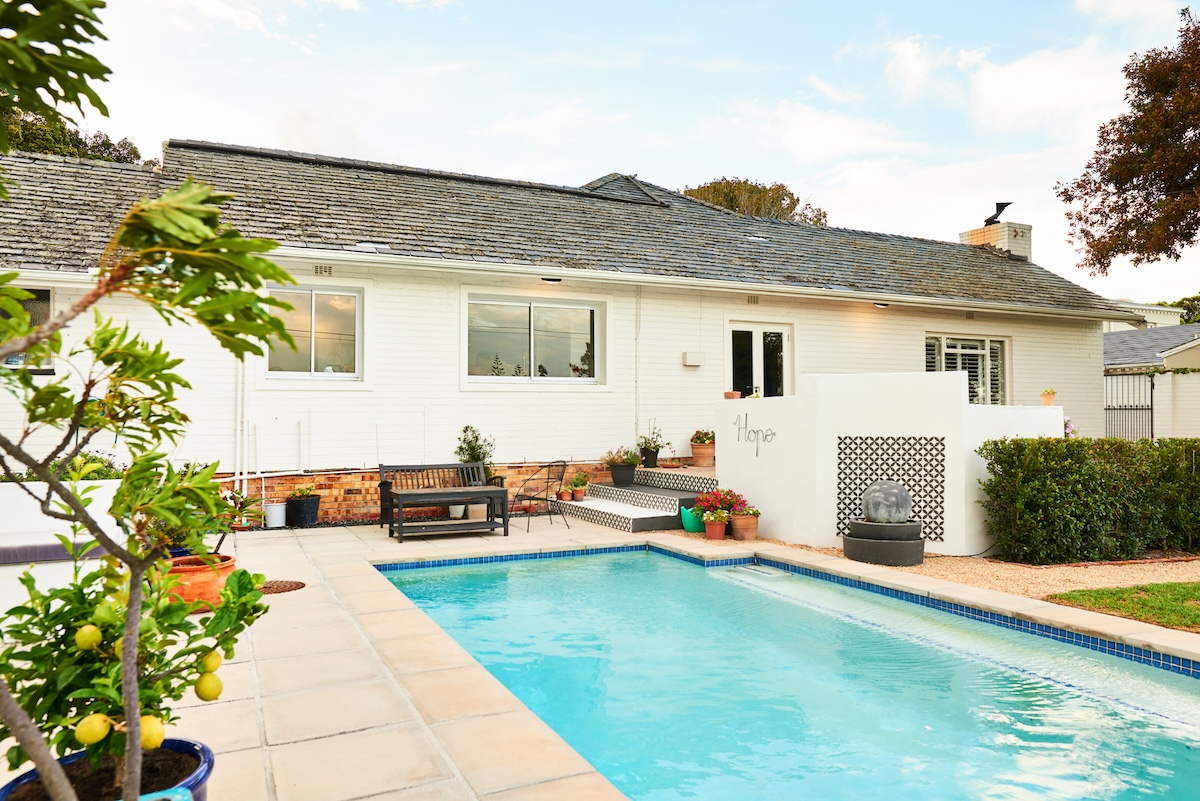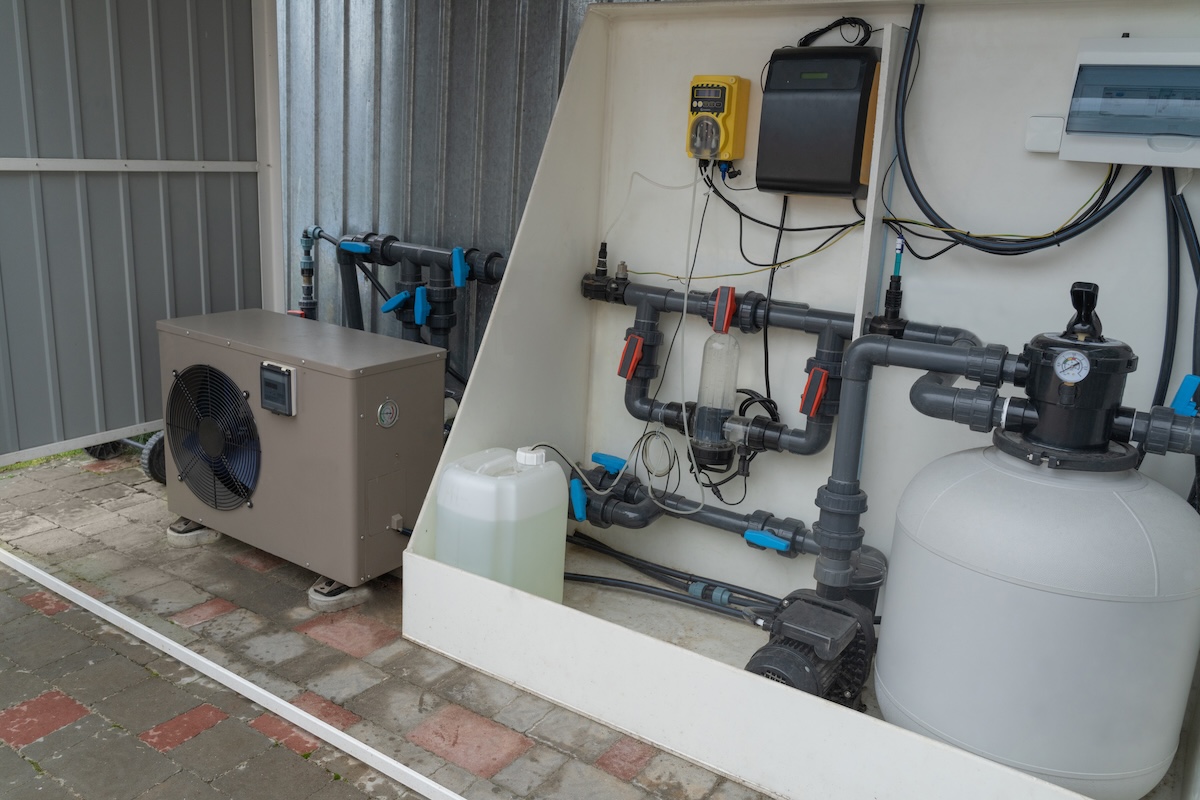We may earn revenue from the products available on this page and participate in affiliate programs. Learn More ›
The benefits of using heat pump technology for heating and cooling homes are now widely accepted. According to the US Department of Energy (DOE), more than 17 million units had been installed in residential premises by 2020, saving up to 50 percent of energy consumption when compared with conventional furnaces or baseboard heaters.
Today, heat pump systems can also save money on hot water, drying clothes, and heating pools. Let’s take an in-depth look at various areas of the home that can be made more efficient with heat pump technology.
HVAC System

Although we have researched the best heat pumps for HVAC use before, it’s worth quickly going over how the technology works again, and focusing on a couple of key factors.
All heat pumps, whatever their purpose, harvest energy from the environment. As Steve Pacholski, brand president of heating and cooling experts Varsity Zone, says, “Think of heat pumps as super-efficient heat movers. They don’t generate heat like a traditional furnace; instead, they transfer heat from one place to another.” He adds, “In the winter, they extract heat from the outside air (even when it’s cold) and bring it into your home. In the summer, they do the opposite by pulling heat out of your home and releasing it outside.” As a result, you don’t need both a furnace and an air conditioner separately. The heat pump does both jobs.
Heat pump cost is an important consideration. Initial purchase and installation may be more expensive than a conventional furnace, but heat pumps generally need less maintenance throughout their lifespan. Add the dramatic reduction in household bills, and heat pumps are almost always the better long-term choice.
Water Heater

You can tell how efficient a water heater is by checking its Uniform Energy Factor (UEF). This is a figure provided by the DOE that represents its overall efficiency.
The best conventional gas water heaters have a UEF of around 0.97. By contrast, the equivalent heat pump water heater can be over 4. Essentially, that means heat pump water heaters are nearly four times more efficient than gas water heaters.
Early heat pump water heaters needed a 240-volt electricity supply, which often meant higher installation costs. The recent introduction of 120-volt models means all that’s needed is a convenient electrical outlet and a water supply.
Not only do heat pump water heaters save money on bills, but in many areas installing one also entitles you to a tax rebate.
Laundry Room

Heat pump technology can be used to make a more efficient clothes dryer. Unlike gas dryers, heat pump dryers don’t need a vent. That means they can be installed just about anywhere, making them ideal for smaller homes and apartments. Plus, heat pump dryers don’t run as hot as traditional models, so they are gentler on fabrics. They also don’t eject dust particles, so they’re perfect for those with allergies or asthma.
Heat pump dryers are becoming more popular, but they are expensive compared to standard models. However, heat pump dryers are durable and can last twice as long as their conventional counterparts. Not to mention, heat pump dryers will lower your energy bill.
Swimming Pool

Heat pump pool heaters are much more efficient than standard pool heaters powered by gas. The DOE estimates that if the temperature of the pool is set to 85 degrees Fahrenheit, then the annual savings with a heat pump pool heater will be around $400 compared to a gas pool heater. You’ll save at least $1,000 per year if the pool temperature is set below 80 degrees Fahrenheit.
Al Fouz of Abaco Air Experts says that “while swimming pool heat pumps have higher upfront costs, the energy efficiency pays off quickly, especially for frequent pool users or vacation rentals. Maintenance is also minimal since no combustion or ventilation is required. Newer heat pumps are very quiet, an important factor for pools where people relax.”


